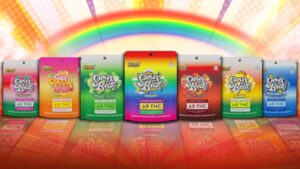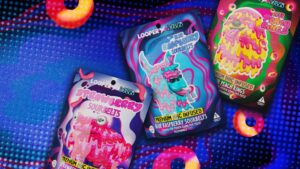Whether you’re passing by a health food store or browsing social media, at some point, you’ve seen the term “CBD.” You may have some knowledge of this cannabinoid already but have other questions that might be difficult to find answers to. In this all-inclusive article, we’ll tackle some of the top CBD questions in the industry, starting with the basics and working our way through to some of the more complex questions. Let’s begin!
What Exactly is CBD (Cannabidiol)?
Cannabidiol is a therapeutic compound of the cannabis plant, offering a safe and effective way to enjoy all the benefits of marijuana without “getting high.” According to projectcbd.com, CBD contains over a hundred phytocannabinoids that occur naturally in the cannabis plant.
One of those phytocannabinoids is the infamous Delta-9 THC, also known as tetrahydrocannabinol. CBD does contain trace amounts of THC, but less than 0.3%, making it products legal for sale within the United States
Cannabis: CBD vs. Hemp
Answer the questions: Are CBD and Hemp the same? Are CBD and Cannabis the Same? Explain CANNABIS is the mother plant of both marijuana and hemp. In wading through the cannabidiol realm, the words hemp and cannabis are thrown around a lot. Does this cause some confusion as to what CBD is, hemp or cannabis?
The answer is BOTH. CBD is derived from hemp, and hemp is a strain of the cannabis plant. (It’s like asking if cheese is from cows. Cheese is made from milk, and milk comes from cows). According to cstoredecisions.com, cannabis is the mother plant, and different strains are obtained from it (i.e., marijuana and hemp).
The main difference is the amount of THC in marijuana and hemp. Hemp contains less than 0.3% of the psychoactive element THC, whereas marijuana contains abundant amounts of THC.
What Exactly Does CBD Do?
CBD is used to mimic the effects of marijuana without getting the user high. According to some sites, cannabidiol can help with decreasing anxiety, improving minor pain, relaxing the user to the point of being able to sleep, soothe those with nervousness, and much more.
Does CBD Get You High?
No, CBD will not get you high. Cannabidiol is required to have 0.3% of THC or less in the product. Since THC is the psychoactive element that gets you high, having a fraction of a percent will have absolutely no effect on you getting high.
Will CBD Cause You To Fail A Drug Test?
While CBD will not get you high, the trace amounts of THC in the product can cause you to fail a drug test. Since drug tests only test for the metabolites left in your body, not what caused them to be there, it is possible to fail a drug test if you consume CBD products. One way to combat this is to take only broad-spectrum CBD.
Full-spectrum CBD utilizes all parts of the hemp plant, while products with CBD isolate eliminates all THC particles in the hemp plant. Since THC is detected in urine tests for up to 15 days after you’ve consumed it, try to lay off CBD products that contain trace amounts of THC until it’s time for your drug test. The more cannabidiol products you take, the more likely it is that THC will show up on your drug test.
What Does CBD Feel Like?
Many people report feeling relaxed and sleepy after taking CBD. According to strainz.com, your body’s ECS is in charge of your sleep cycle, hormones, body temperature, and more. Since the cannabinoid directly affects the ECS, you may feel relaxed to the point of wanting to go to sleep. Other people report that CBD gives them better focus and improves their engagement in daily activities.
If you’re using cannabidiol to treat pain, you may notice a decrease in your pain areas, especially arthritis, back pain, and joint pain. You may also feel more alert and energetic, as CBD can decrease the pain that prevented you from doing strenuous activities. You may notice less tension in your muscles as the CBD works to loosen those tense and sore muscles. However, CBD affects you, keep in mind that you will never feel euphoric or high (i.e., how marijuana makes you feel high and lethargic).
What is CBD Most Commonly Used For?
There are several known reasons for using CBD, but the most common are for pain management and anxiety. According to cstoredecisions.com, in 2018, CBD became the sole medication allowed by the FDA to treat two types of epilepsy. It has also been used to treat depression, PTSD, other sleep disorders and is used for relaxation without getting “high.”
What are the Most Common Benefits of CBD?
There are several impressive health benefits that CBD can offer. Aside from allowing you to relax and relieve minor pain, CBD has also been proven to reduce epilepsy. According to an article written by health.harvard.edu, “CBD was able to reduce the number of seizures, and in some cases, it was able to stop them altogether.”
If you doubt the scientific evidence of such claims, you can check out YouTube to see how children suffering from epilepsy react to CBD. The seizures were either reduced or eliminated entirely. Thanks to this scientific discovery, the FDA approved Epidiolex, the first-ever cannabis-derived medication specifically for seizures.
CBD has also been used to treat anxiety, PTSD, depression, sleep disorders (insomnia), and mild pain from arthritis and neuropathy. Clearly, the benefit of CBD helps with both mental and physical health.
What are the Most Common Side Effects of CBD?
Just as with any drug or medication, CBD can have some side effects, especially if this is your first encounter with the hemp plant. According to verywellmind.com, drowsiness is the top side effect, but this can be a good thing if you’re using CBD to treat sleep disorders. You may experience gastrointestinal discomfort, including diarrhea and liver problems. This is mainly for those who already suffer from gastrointestinal issues, but it’s worth mentioning nonetheless.
Another common side effect is dry mouth, though this is more common with THC products. You may experience increased thirst or “cottonmouth,” but this is quickly rectified with a swig of water. CBD has been known to negatively affect some medications like warfarin, which we’ll discuss further in this article. Lastly, if your body is sensitive to CBD, you may experience nausea.
What Types of Cannabidiol Exist?
There are three types of cannabidiol that currently exist on the market. They are all derived from the hemp plant but are processed differently to have a unique chemical structure. Winsightgrocerybusiness.com describes it as “There’s a plant, and it’s got desirable attributes, so we process it in certain ways to have more or less of one attribute or another.”
In short, each cannabidiol has different properties that allow them to be unique, but basically the same thing. Think of it like apples. There are many different varieties, but each one has a different flavor, color, and texture, and they can be used uniquely to create various food dishes.
CBD Isolate
According to winsightgrocerybusiness.com, CBD Isolate is just what it sounds like: “the isolated cannabinoid from the extraction of the flower such that it contains a singular chemical compound, such as CBD, and no other cannabinoids.” It is CBD in its purest form, with no terpenes, other cannabinoids, THC, or flavor.
While this is the best option for those worried about passing a drug test, it is an extremely limited option and does not provide any of the health benefits that full or broad-spectrum CBD does. CBD isolate powder is considered the best, if not only, option for CBD users. The extraction process is tedious and expensive, making this one of the more difficult-to-find and pricier options.
Full Spectrum CBD
Full-spectrum CBD means that the full plant is used. All of the hemp plant’s extract, including the THC and cannabinoids, are used. In order to be legally sold, there must still be less than 0.3% THC in the CBD product. Using all of the cannabinoids, terpenes, seeds, and other parts of the plant creates an “entourage effect,” meaning that the full-spectrum CBD can offer greater benefits when the entire plant is used.
The only issue with using the full plant is the possibility of failing a drug test. Since your body processes THC in any form, the metabolites that break down the THC will be present in your bloodstream, but a drug test will not be able to elaborate why the THC was there, just that it was in your body at some point.
Broad Spectrum CBD
Broad-spectrum CBD is the best choice of any of the cannabidiols, as it offers the hemp extract with most of the other cannabinoids, sans any THC. The THC is completely removed, allowing those to consume broad-spectrum CBD products without fear of failing a drug test. With no THC present, this particular form of CBD is legal throughout the US.
However, there are some concerns that this form of CBD is vastly unregulated. Anyone can claim to have the other cannabinoids within, while in reality, they have been removed partially or completely. Since removing the THC is an expensive and time-consuming process, broad-spectrum CBD products may be more expensive.
What are the Most Common Types of CBD Products?
The world of CBD products is incredibly diverse. We’ll go over some of the most common types of CBD products, but keep in mind that there are many other types of CBD products. From pet treats to suppositories, CBD products can be used in just about any way you can think of; there are several ways to use CBD.
Tinctures & Oils
These types of CBD products are simple to use and are designed to be taken sublingually. Simply release a dropper full of the tincture under your tongue, hold for at least sixty seconds, then swallow. There are different strengths, flavors, and scents to these tinctures.
Further, you can also add tinctures and oils to your food and beverages, but since most of the CBD will be processed by your digestive system, much of the CBD’s usefulness will be lost as your body processes it in your waste and excrement.
Topicals & Creams
Topicals and creams are delightful and much-needed if you’re looking to target a specific area of pain. Many of these creams and balms are mentholated, allowing you to feel a pleasant cooling as the topical is absorbed into your skin. Since the CBD is applied to your skin, the CBD will never reach your bloodstream and will be absorbed by the dermis upon application.
Additionally, there are a number of products that are designed for specific areas of the body like the back and neck. Whatever pain you’re experiencing, you can target-treat these areas with CBD for quick relief.
Capsules
If you already have a morning vitamin routine, adding CBD to your daily regimen is extremely simple. Since the capsules are easily broken down in your digestive tract, the CBD quickly enters your bloodstream and can be distributed to various parts of your body. What isn’t used immediately is stored in your fat cells for future use.
Vapes & Extracts
These particular types of CBD products require a specialized device to use. You’ll need a low-wattage mod that you can fire and deeply inhale. Sub-ohm mods aren’t recommended for this type of CBD product, so if you vape regular e-juice and nic-salt, you’ll need an entirely new device to enjoy CBD vape juices. However, the vapor produced from CBD vape juice quickly permeates your lungs and is known to be one of the best methods for CBD bioavailability.
Flower
CBD flowers require patience when using them, as the work to use them can be considered tedious. You’ll need to pick and crush the CBD flowers, grind them into a small pile, and carefully load them into your herbalizer. Since herbalizers can be expensive and finicky, you’ll want to practice before you make this your preferred way to use CBD.
In fact, if you have access to cigarettes, you can simply tap out the ground tobacco and refill the empty cigarette stick with crushed CBD flowers. Then you can light and smoke the CBD cigarette as you would a regular one.
How Long Does CBD Take to Work?
Depending on what type of CBD product you take, you can feel the results instantly or in a matter of months! According to hempdaddys.com, many people give up before they start to see results, or they’re taking too little to really feel anything. Patience is key with CBD. Since this particular cannabinoid doesn’t cause euphoria or a heady feeling like marijuana, it’s impossible to tell when exactly CBD starts to kick in.
Certain products will help you feel the effects right away, such as CBD flowers, vape juice, and topicals. But for products like tinctures and capsules, you should think of it as an overall wellness addition to your daily life. You don’t expect vitamins and fish oil to work immediately, but you know your body will improve with continued consumption. The same is true of CBD. If you feel like you’ve been taking CBD with no change, consider changing the type of CBD product you’re using or at least increasing your dosage amount and strength.
How Long Do the Effects of CBD Last?
The effects of CBD can last anywhere from 2-12 hours. This wide range of time depends on several factors: how much you’re taking, how often you take it, your body type, what you eat, your lifestyle, and which method you’re taking. Some CBD products can have effects that last longer than others, such as the vapor from vape juice and smoke from CBD flowers.
Since these enter the bloodstream instantly via lung absorption, you’ll feel the effects much quicker than if you were to enjoy a CBD gummy with a full meal. Keep in mind that if the CBD method you take has to be digested (gummies, tinctures, capsules, etc.), the effects will be much less noticeable as your body will only use about 10% of whatever is not digested.
Are There Any Drug Interactions with Cannabidiol?
Unfortunately, CBD can negatively interact with certain medications, so you’ll want to consult your primary health professional before embarking on a new CBD regimen. According to huffpost.com, CBD has been known to increase the amounts of warfarin that your body absorbs. Since warfarin is used to treat and prevent blood clots, too much could cause excessive bleeding and hemorrhaging. If you are older or have multiple medications for multiple conditions, you should proceed cautiously with any CBD products.
Where Can You Buy CBD?
In its infancy, CBD used to only be sold in vape shops and was often confused for marijuana products. However, as the knowledge and popularity of CBD has grown, so has its availability. You can buy CBD products online (after submitting proper age verification), in vape shops, smoke shops, dispensaries, CBD shops, health food stores, pharmacies, grocery stores, and literally anywhere medication is sold.
The types of CBD products available will vary depending on where you buy them from. Pharmacies may carry only capsules, health food stores may have CBD tinctures, capsules, edibles, etc., and vape shops may only have CBD e-liquids. Do your research and find out which CBD product is right for you.
How Do You Know Your CBD Is High Quality and Reputable?
According to healthline.com, CBD products can be grown, created, and sold by literally anyone. As a result, the CBD product may not be reputable or contain high-quality ingredients, or even the amount of CBD advertised.
You can combat this by checking to see if there is a third-party independent lab test result on the product or website. This will help confirm that the product contains what it says it does. You should always buy from a reputable business or website, preferably with customer reviews and testimonials. Review sites and blogs are also helpful with fact-checking information and ensuring you are getting what you pay for.
How Old Do You Have to Be to Buy CBD?
Depending on which state you live in, you may need to be either 18 or 21 years old. Proper identification will be required before purchasing any CBD products. If you buy online, you may be asked to upload a picture of your ID to verify your age, whereas, in a brick-and-mortar store, you’ll simply be asked to show it.
If you’re buying CBD from a dispensary, you’ll need to be at least 21, especially if that dispensary sells marijuana products. To even enter some online websites or read about CBD articles, you may be asked to verify your age by clicking a tab before being allowed on that site. Each website is different, so if CBD is legal in your state and you’re only 18, you may be denied entrance onto the site.


